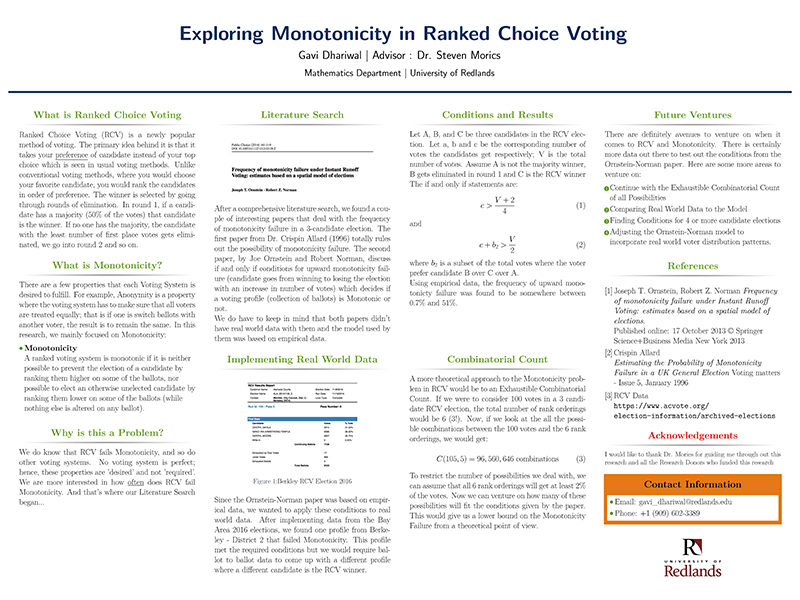Exploring Monotonicity in Ranked Choice Voting

Gavi Dhariwal '22
Abstract
Ranked Choice Voting (RCV) is a voting system where voters don’t choose candidates and instead rank them based on their preferences. Off lately, it’s been gaining popularity and has been used in the Bay Area, the state of Maine, and even globally in places like Australia, New Zealand, Fiji and the UK. But like all voting systems, RCV fails a few desirable voting properties. One of the voting properties is Monotonicity; a voting system is monotonic if a candidate doesn't go from winning to losing the election by gaining votes (or goes from losing to winning the election by losing votes). This research takes conditions for Monotonicity failure for 3-candidate elections and applies them to real-world data. This research also looks at a theoretical approach to finding a lower bound for Monotonicity failure.


